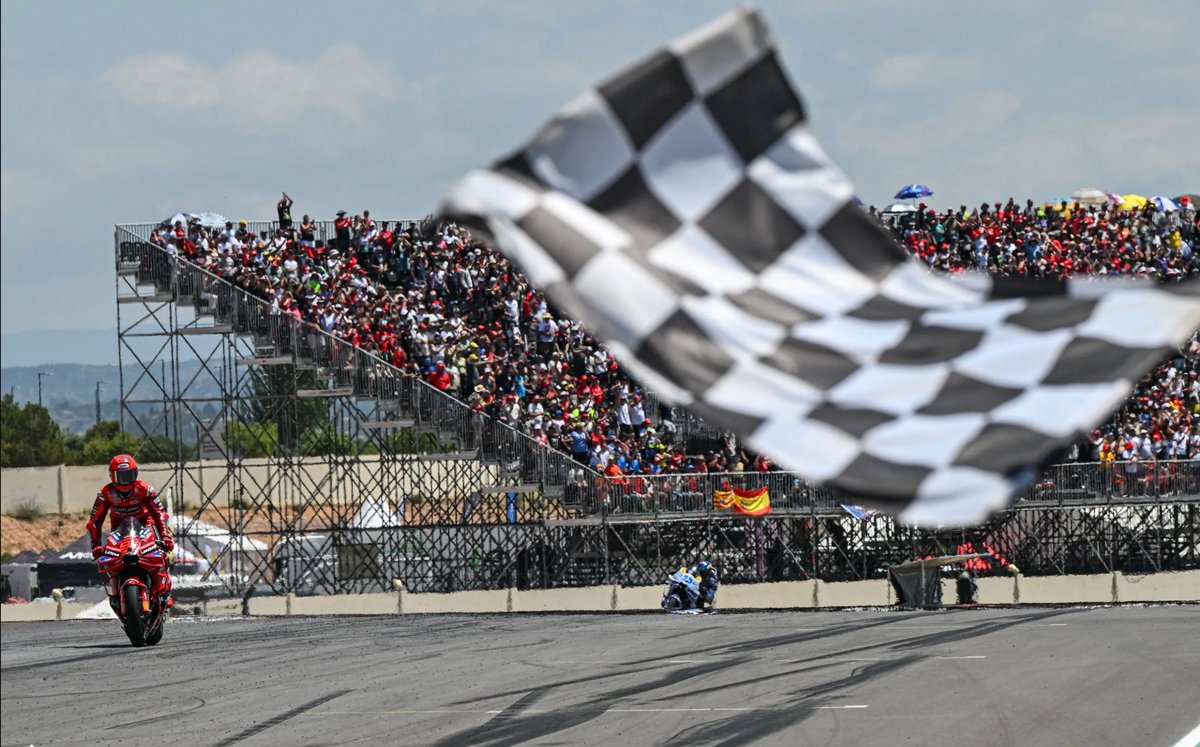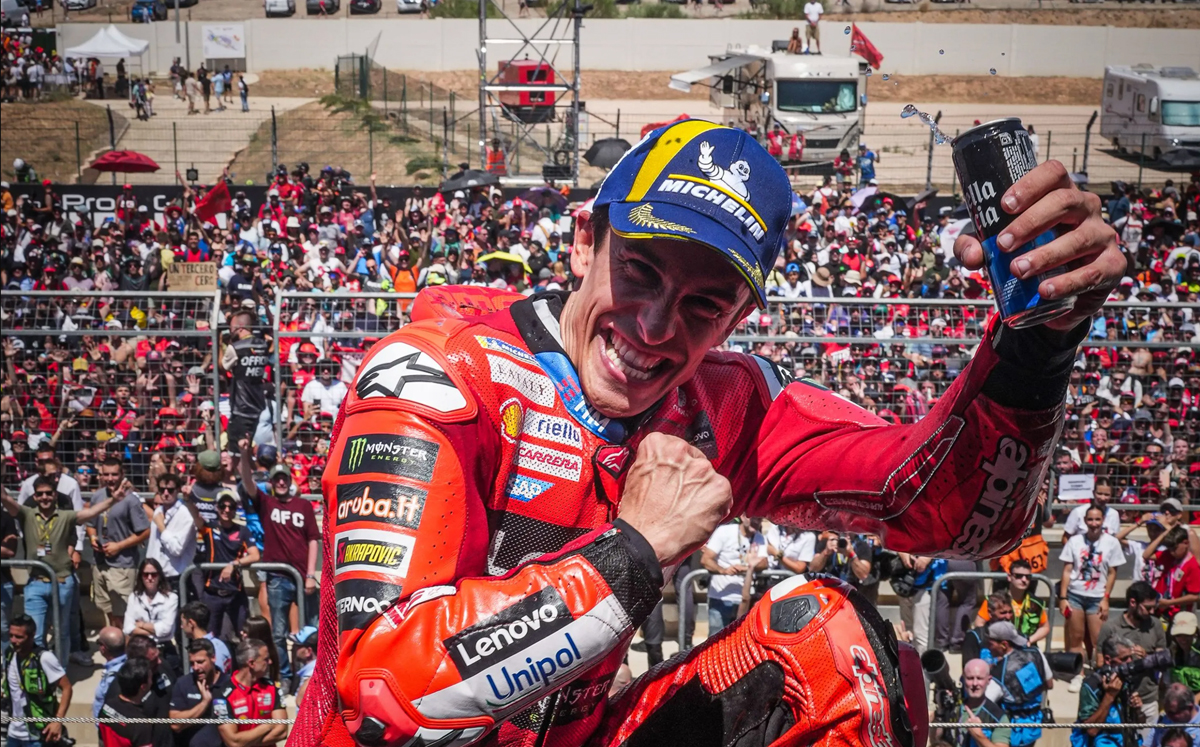
If ever there was an emphatic answer to the travails of the past couple of races, both of which he lost, then it would be Marc Marquez’ complete domination of the Spanish GP at Aragon; fastest in every practice session, pole position, Sprint and Main race wins and fastest lap. It doesn’t happen often; the last time that happened was back in 2015 in Germany, and the rider to accomplish that was none other than Marc Marquez. If ever there was an indication that Marquez, the elder, was back on top after too many years in the injury wilderness, then that was surely it?
Even though the Aragon victories were not unexpected, given that the track has previously been a happy hunting ground for Marc, the level of dominance, coupled with the attendant increase in his championship lead, will certainly have provoked a sense of resignation among his rivals up and down the pit lane. After a few races without a victory and including some unforced errors, Marquez needed a race in which to stamp his authority on the championship once again, and you’d have to say it was job done.
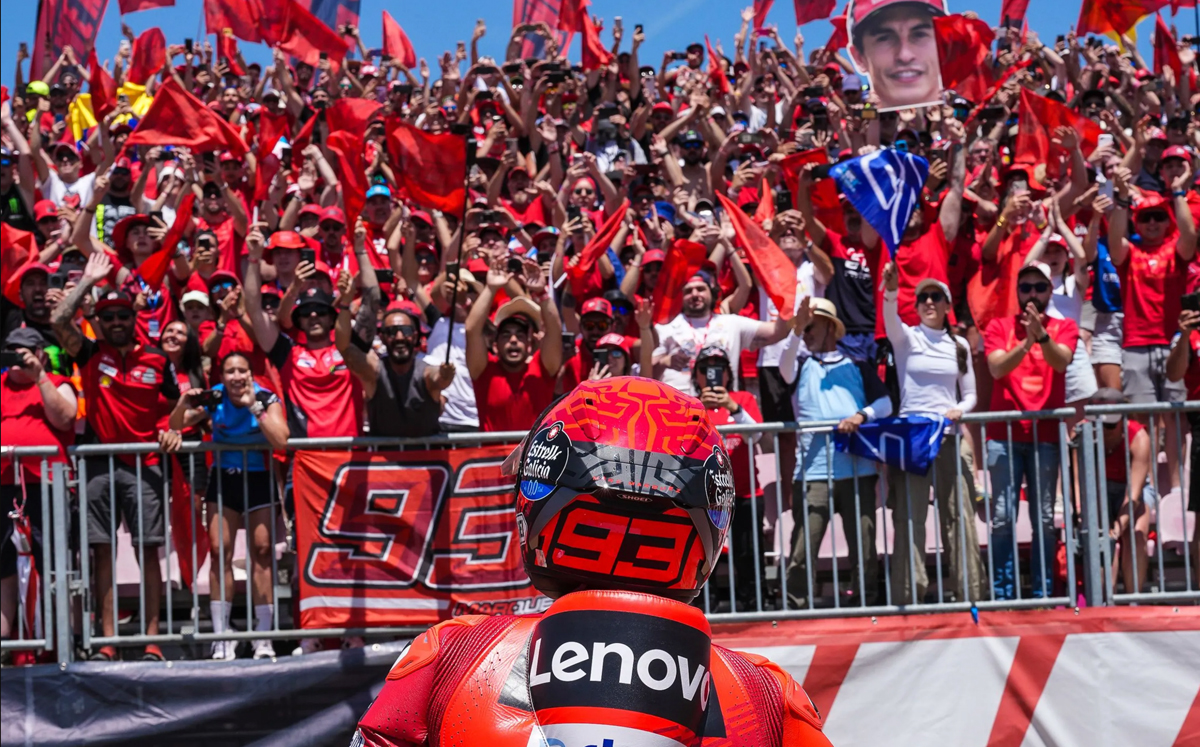
Or maybe not. After yet another disastrous Sprint race, Pecco Bagnaia suddenly came alive in the Main race, finishing on the podium in third place. A greater contrast between Saturday and Sunday there could not have been, and, apparently, it was all down to a change in front brake discs. A change to a larger disc size seems to have made all the difference.
“Until yesterday (Saturday), I was using all my force to decelerate the bike, but the bike wouldn’t decelerate and I was locking everywhere,” said Bagnaia after the race. “Today we just changed something on the disc and from the start of the day (Warm Up) I was able to brake harder when I needed, brake less when I felt that the front was locking, so it was a huge step for me and it was a little detail that has given to me a bit more confidence that has helped me to be competitive lap-by-lap.”
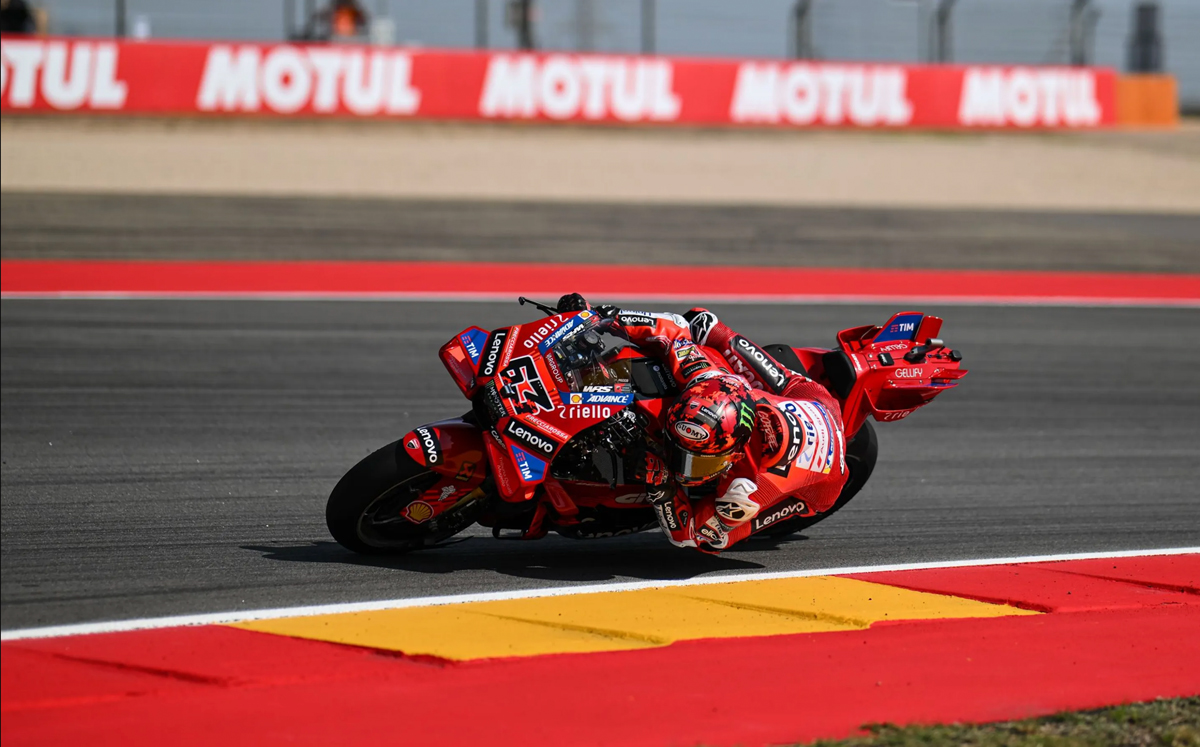
“Before the change, I was losing the front, understeering everywhere, and it was quite difficult for me to be competitive yesterday in the Sprint race – I tried, but the front was locking in every corner, so it was tough. “Today, from this morning, I was feeling much better, maybe the disc has helped, but maybe not just the disc. I was able to force the entry of the corners, and the feeling was that the tyre was there, not that I was losing it, so it was a huge relief for me.”
“We just changed the disc of the bike, and it’s something that we never did in the past, and it’s something that we were not thinking about because normally it’s always the same. It was a huge step and it helped me to be able to brake less and reduce the speed more. Until yesterday, I was the one with more pressure on the brake and less deceleration, so it was a bit strange, and this morning it was better already with changing just this.”
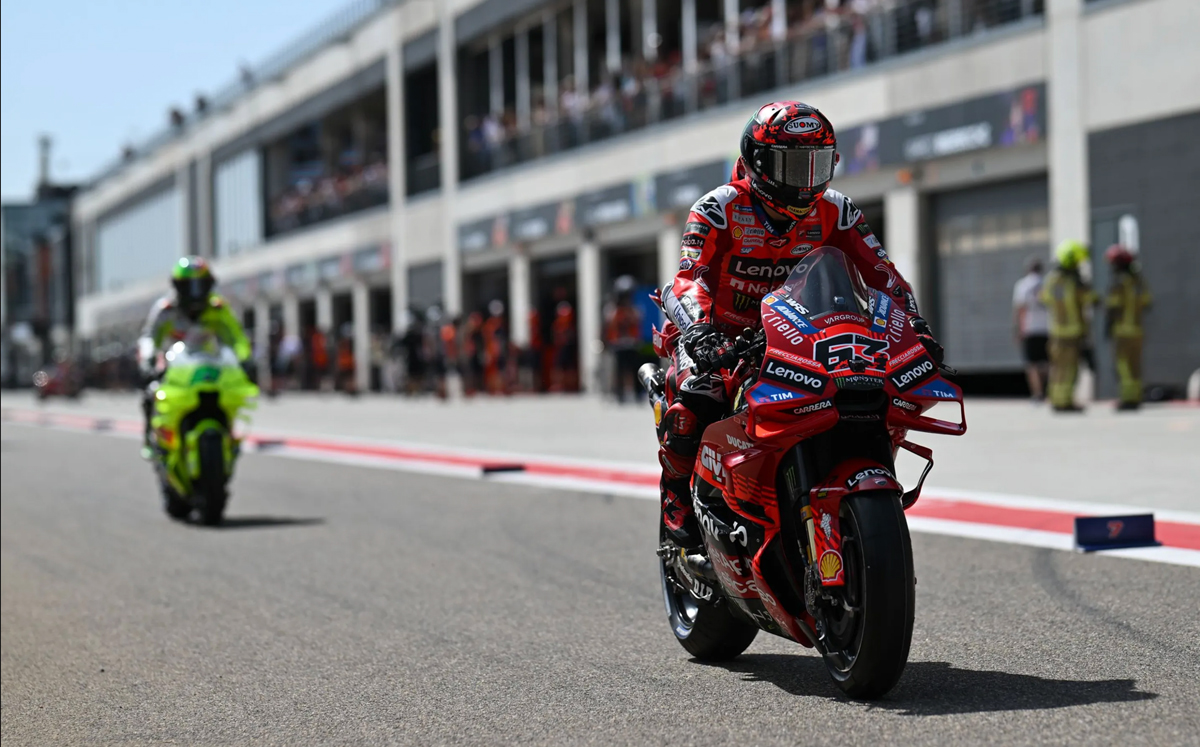
He added, “We decided to upgrade the disc, to move to a bigger one, and I feel a bit better. It’s important to find some solution or to try another step, just to believe in a victory at home because Mugello is a track where I was always super-competitive and I want to arrive there and at least fight for it, not like this weekend that I finished on the podium but I never had the chance to win.
“So, I would like to have a chance at least. I don’t think it’s the solution to my feeling, but it’s something that has helped.”
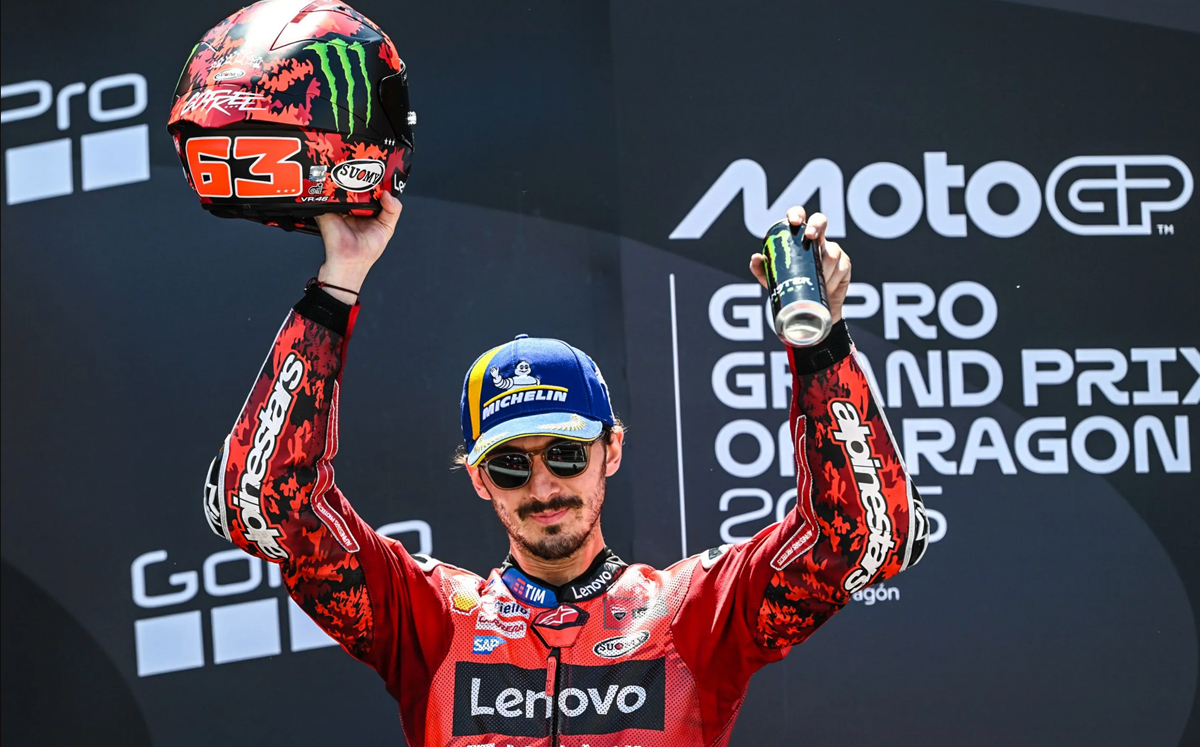
Mugello and Assen – the next two tracks on the calendar – have been successful races for Bagnaia in the past, so he will be hoping for the good feeling to continue through today’s test at Aragon and into the next month of racing. He may be 93 points off championship leader Marquez, but, as 2022 proved, that is not necessarily insurmountable, although it is hard to see anyone but Marc Marquez taking the title in 2025 if he can maintain his current form. Of course, Alex Marquez is also still in with a shot, so Bagnaia has twice the trouble he had in 2022, but you don’t win two consecutive championships without knowing a thing or two about how to race. A competitive Bagnaia will almost certainly give the Marquez brothers something to think about.
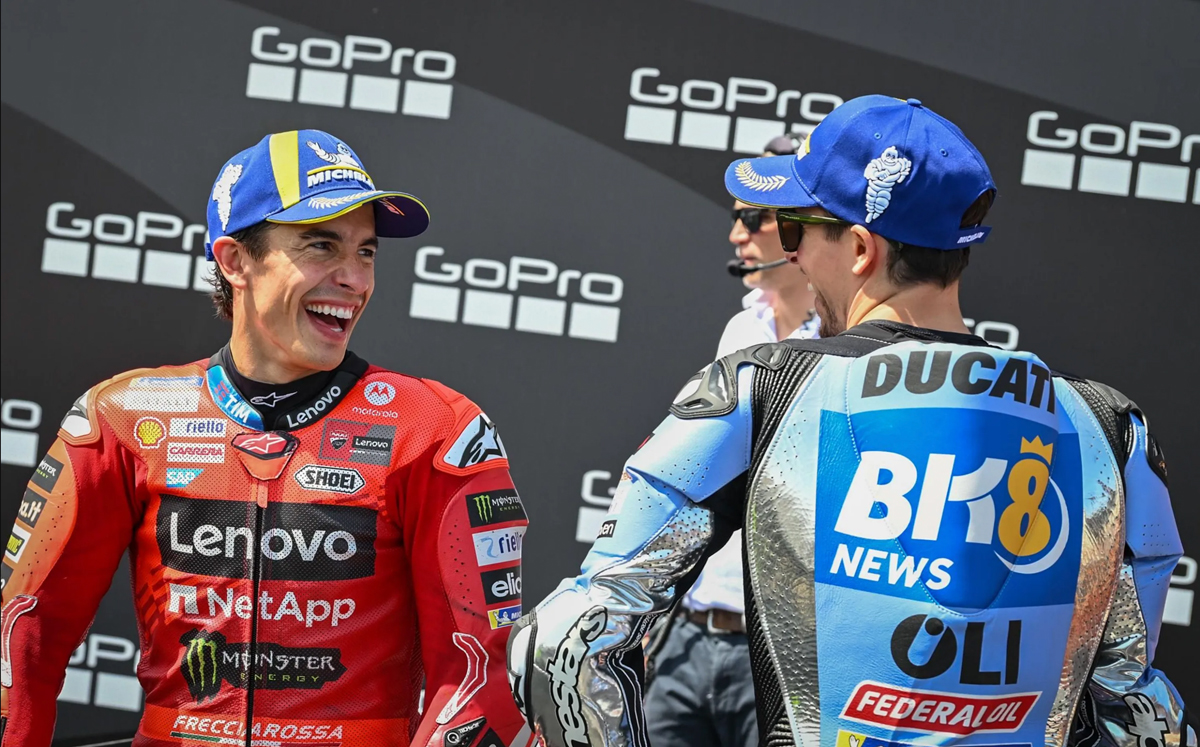
What was also encouraging was to see both Acosta and Binder fighting in the top five, with Binder even setting fastest lap at one point, after too many races where they have been languishing far down the order. If Acosta wasn’t able to successfully challenge Bagnaia and Binder ultimately crashed out, it was still a step in the right direction, but, as always with KTM, it remains to be seen if this is the start of a consistent patch or if it will be business as usual at Mugello. Binder, at least, is confident that he is moving in the right direction in setting up his bike, with more weight on the front to prevent it washing out underneath him.
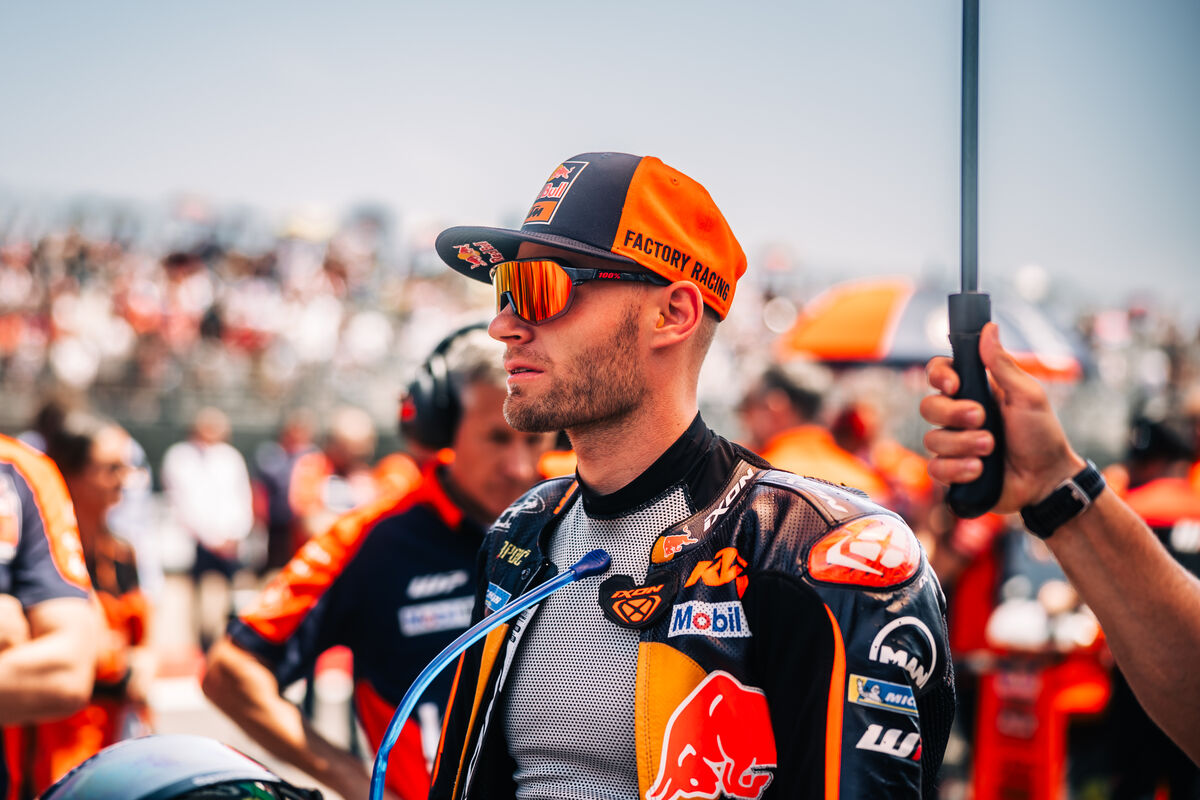
One thing is certain, however; after the last two rounds at Le Mans and Silverstone, with both factory riders being very vocal about the RC16’s shortcomings, something desperately needs to be done if KTM firstly is to not lose Acosta, secondly if Binder is not going to have his reputation damaged too much and, not least of all, if KTM is to continue in MotoGP, see here.
Aragon signalled progress of a sort for the Austrian manufacturer, but was it a flash in the pan? We’ll have to wait two weeks to find out.
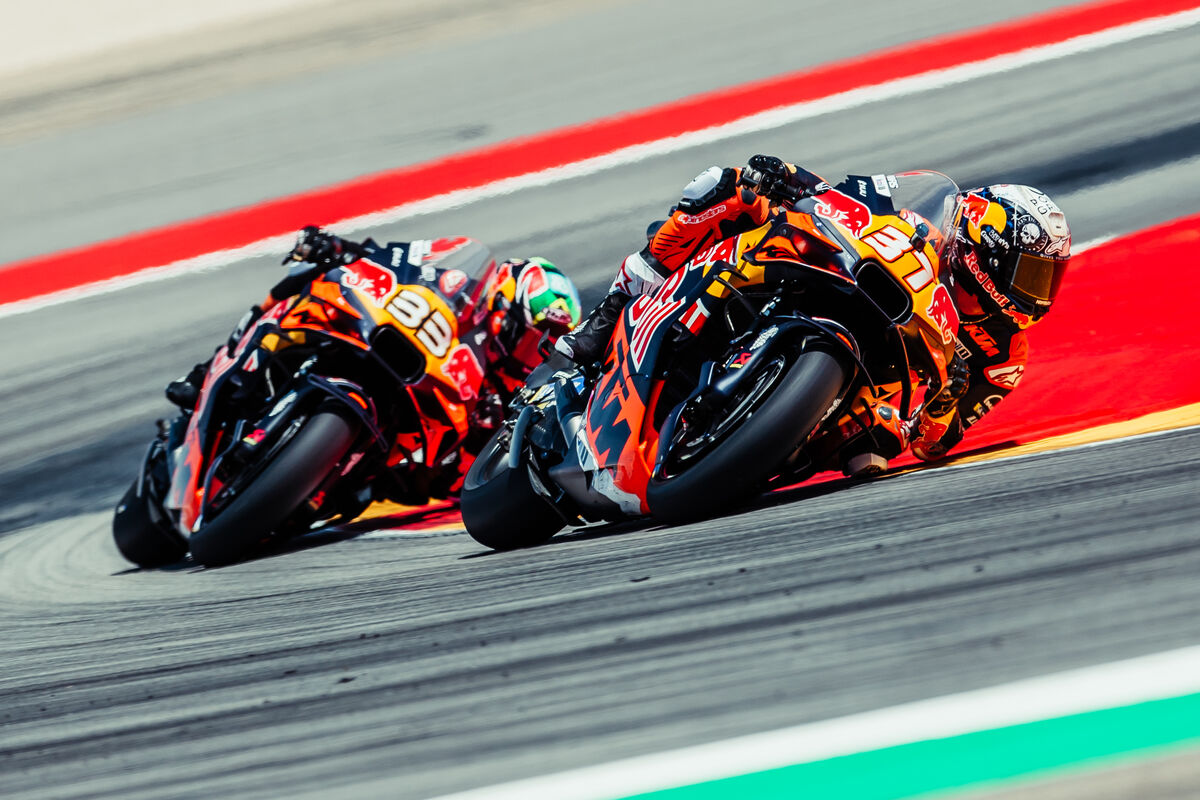
In Aragon, if the top four remained relatively static, then at least we had a bit of entertainment from Morbidelli and Aldeguer, who were squabbling over fifth, the verdict going in favour of Morbidelli at the flag. But the fact remains that overtaking is still a rarity in modern MotoGP.
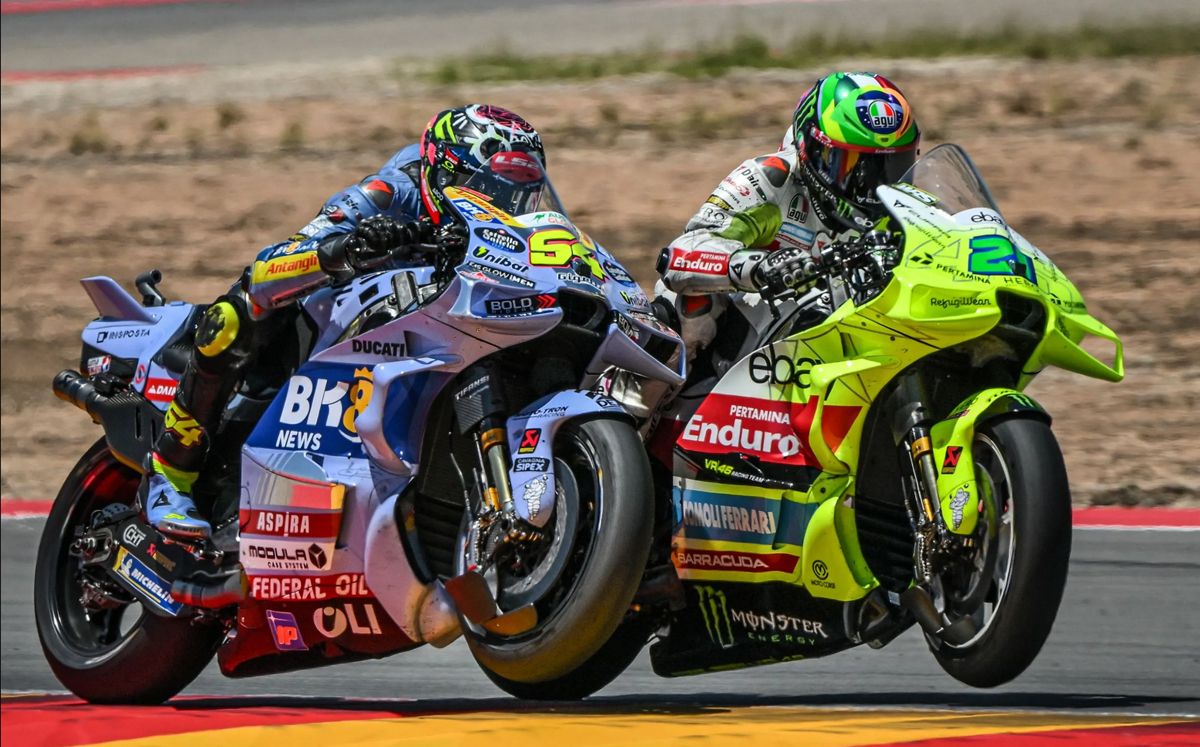
Hopefully, the rule changes in 2027 will make a difference – smaller engines and no ride-height devices and, more pertinently, a reduction in aero dimensions. Do the rules go far enough? Personally, I can’t see why aero cannot be banned altogether, perhaps by introducing maximum bodywork dimension rules. The fact is, however, that having tasted the benefits of aerodynamic downforce, teams will be loath to lose it altogether and would no doubt come up with more interesting fairing designs to compensate for the loss of downforce should their “wings” be clipped.
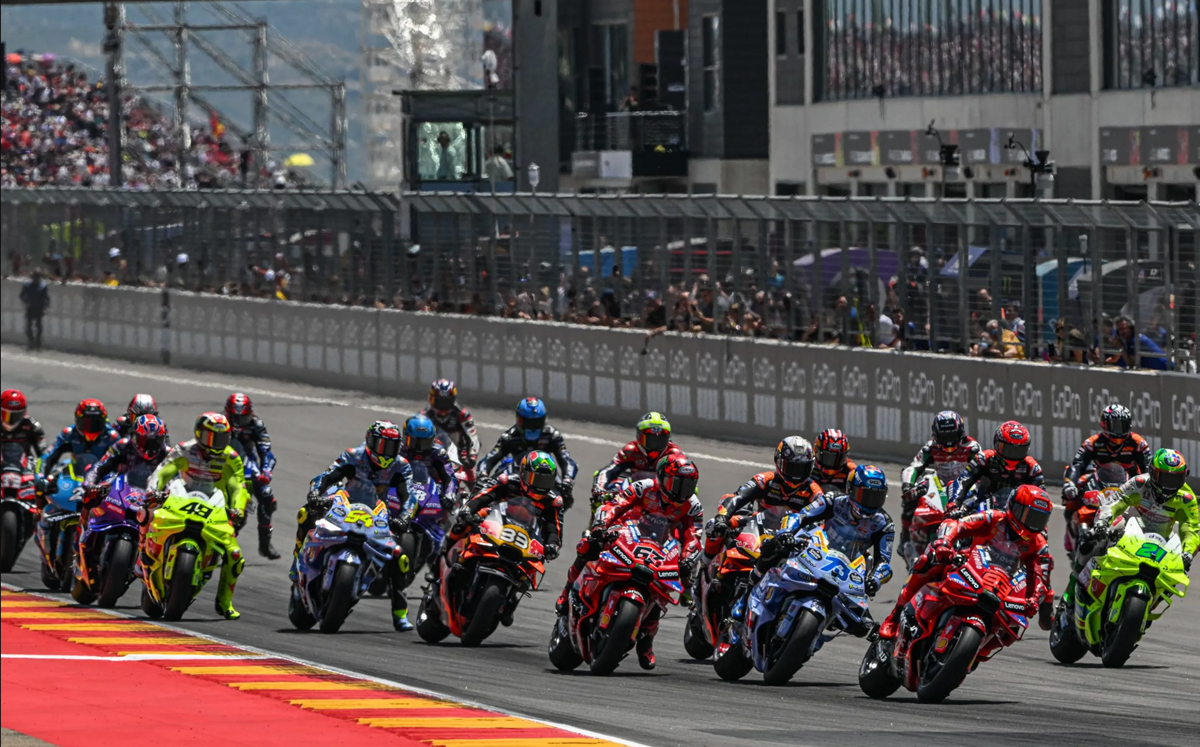
There is an argument that technical innovation should not be stifled in a prototype racing series. The problem is that every innovation makes the bikes faster until we get to a point where they are too dangerously fast for even the modern racing circuit, complete with its huge run-off areas.
Some will argue that the rule book is already too restrictive to imaginative engineering thinking, and it is true that today’s rule book is vastly longer than it was, say, twenty years ago. But perhaps this is the point of racing: to put up roadblocks and let the engineers navigate a way around them, thus stimulating development. As long as that development is not at the expense of good, close and, essentially, exciting racing.
